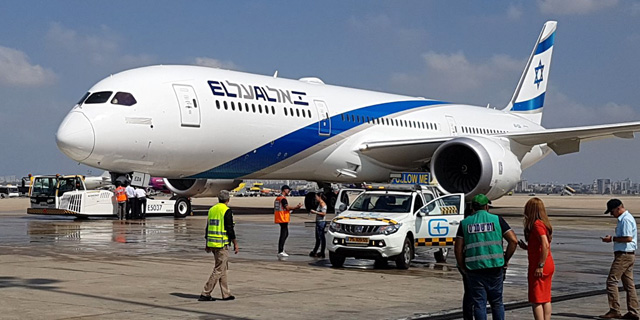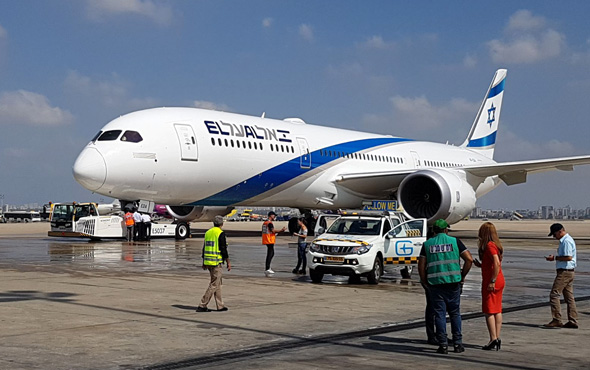
Coronavirus
Israel's Airlines Are Looking for a Cushy Landing Post Corona
As coronavirus-related damages pile up, Israel’s airlines appeal for government support
A Sunday meeting between the Israeli Ministry of Finance and representatives of Israel’s national carrier El Al regarding the Covid-19 crisis ended with a demand for a thorough business plan from the latter that will include a series of cost-cutting steps. “The state budget will not cover the company’s funding gaps unless El Al has first done all it can to limit damages from the crisis,” ministry executives told Calcalist on condition of anonymity. Ministry teams also met Sunday with representatives from Israeli carriers Israir Airlines Ltd. and Arkia Israeli Airlines Ltd., which will be required to meet the same terms if they want assistance.
El Al has so far let go 250 employees out of the 1,000 it intends to terminate. On Sunday, the company told the ministry it intends to lay off 600 permanent employees overall out of its 6,000 permanent employees, while the rest of the terminations will be from El Al’s temporary staff.
Prior to the Sunday meeting, the Israel Air Line Pilot Association published the airlines’ assistance demands publicly for the first time. In a presentation that, it is safe to assume, was coordinated with management, the immediate demands were revealed: compensation in the form of an assistance package; a reduction in the fees paid to the Israel Airports Authority; government guarantees for some of the loans the airlines took out; short-term loans from the government; and a delay in tax payments. Mid-term demands pertain to recovery assistance, such as preferential access to Terminal 1 at Ben Gurion Airport, new models for fees and taxes, petrol subsidies, the establishment of a risk insurance fund, and development grants such as the ones currently awarded to new hotels.
In its latest earnings reports, El Al’s current liabilities for the first nine months of 2019 stood at $1.48 billion. The company is currently replacing old planes with Dreamliners, at a total cost of $1.6 billion. According to Sunday’s presentation, the Israeli airline industry brings in an annual NIS 3 billion (approximately $853 million) in taxes and fees. The creators of the presentation stated the collapse of the local industry will cost around NIS 600 million (approximately $170.7 million) in total—a compilation of unemployment payments, increased demand for state financial aid, and the negative impact on income tax payments and consumption. This scenario, however, assumes all 7,000 people employed in the industry will lose their jobs.
On Sunday, El Al updated its profit warning, and it is now estimating $160 million less in revenue for the January-April period. The announcement, however, mostly refers to a period before the Ministry of Health added France, Germany, Spain, Switzerland, and Austria to the list of banned countries. It is still unclear whether Israel will decide to close its borders to all countries—Prime Minister Benjamin Netanyahu is set to announce a decision Monday.
Related stories
According to El Al, future bookings have so far dropped by 66%, compared to previous years. According to Sunday’s presentation, El Al canceled 576 flights so far since the beginning of March, Israir canceled 79, and Arkia canceled 69. Around 400 additional flights are expected to be canceled by the end of the month, mostly El Al flights. These cancellations have cut into the companies’ immediate cash flow.
The current crisis does not stop at the airlines. The Israel Airports Authority announced on Sunday it will put 1,400 of its temporary employees on unpaid leave. The authority has 4,000 permanent employees and 2,000 temporary ones.
